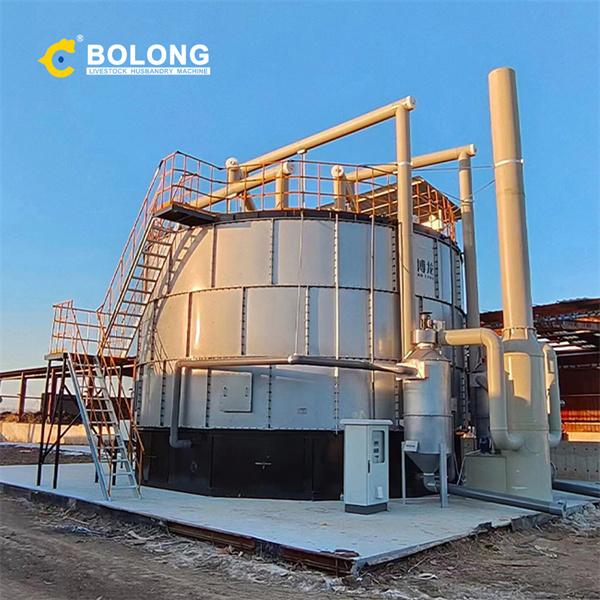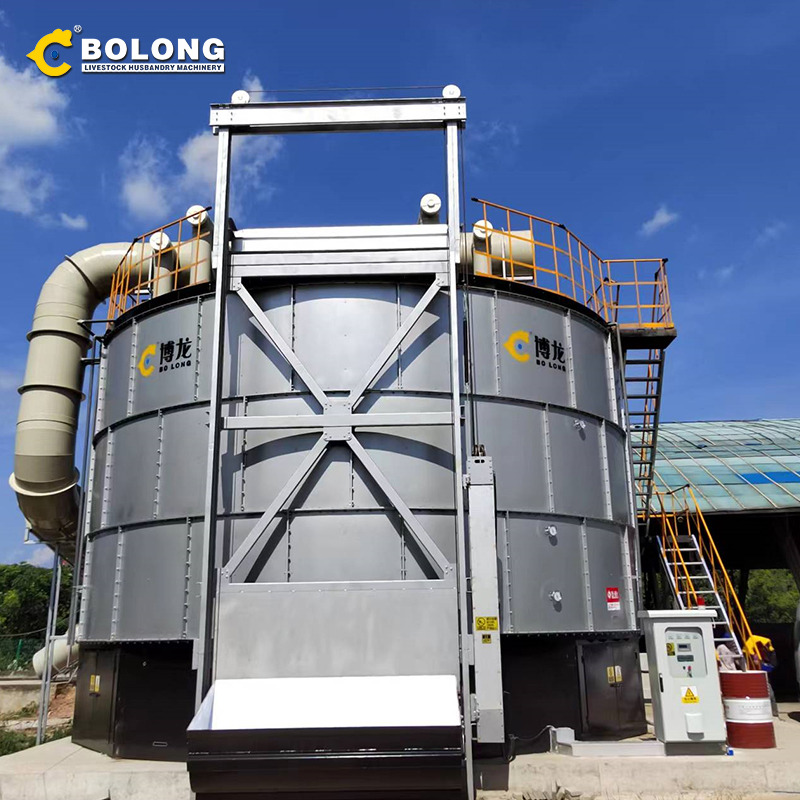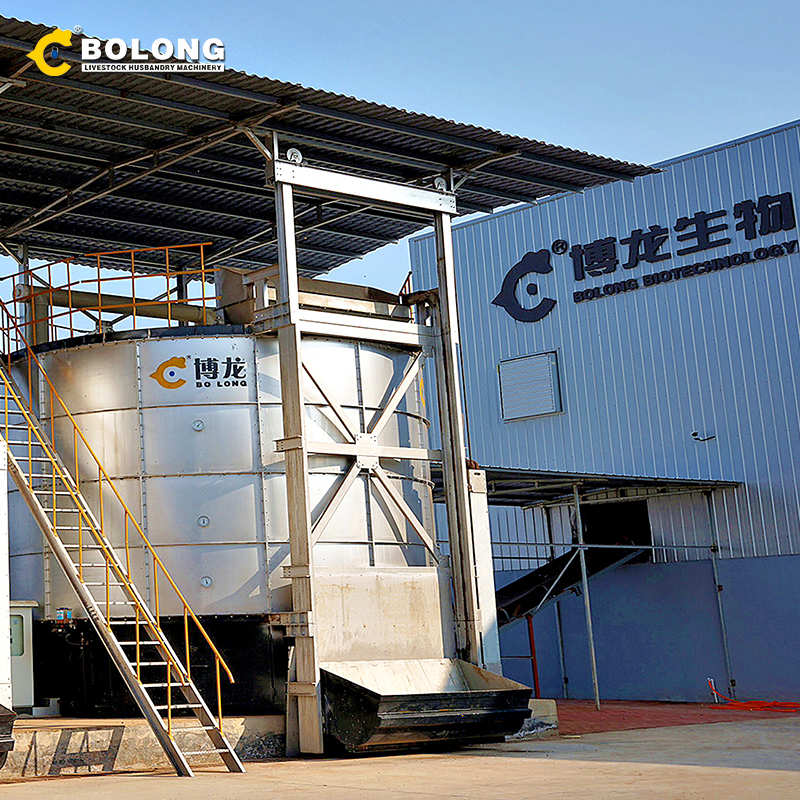In modern agricultural production, how to improve the utilization rate of fertilizers and reduce environmental pollution has become the focus of many farmers and farmers. With the rise of organic agriculture and environmental awareness, more and more farmers began to use organic fertilizers to replace chemical fertilizers to achieve sustainable development of agricultural production. composting machine as a new type of organic waste treatment equipment, widely used in the fermentation process of organic fertilizer, which not only improves the quality of fertilizer, but also greatly improves the breeding environment, and become the right hand of farmers.
Organic fertilizer is a natural fertilizer derived from plant and animal residues, which has the important functions of improving soil, promoting crop growth, improving soil fertility. However, the production of organic fertilizer is not overnight. In the farming industry, a large amount of manure, residual feed and crop residues and other organic wastes, if not effectively treated, not only difficult to be used directly as fertilizer, but also may cause malodor, contamination of groundwater sources and air, and even cause the spread of pests and diseases. Therefore, organic waste needs to be fermented and transformed into harmless and beneficial organic fertilizer.
In this process, the composting machine, as an important fermentation facility, plays a crucial role. It promotes the activity of microbial groups in organic waste by providing suitable temperature, humidity and aeration conditions, accelerates the fermentation process, and improves the quality and safety of fertilizers.

Fermentation is a process of microbial decomposition of organic matter, involving a variety of bacteria, fungi and actinomycetes and other microorganisms. Traditional organic fertilizer fermentation relies on natural composting, which is not only a long cycle, but also susceptible to external environmental influences, such as weather changes, temperature and humidity fluctuations, resulting in unstable fermentation results. The composting machine can provide a stable growth environment for microorganisms through precise temperature control, humidity control, aeration and agitation, thus greatly improving the efficiency of fermentation.
In the composting machine, temperature and humidity can be adjusted in real time to ensure that the microbial activity during the fermentation process is at an optimal state. For example, when the temperature is between 50°C and 70°C, pathogenic bacteria and parasite eggs can be effectively killed, preventing them from causing harm to crops or the environment. In addition, the aeration device in the composting machine can ensure sufficient oxygen, which promotes the propagation of aerobic microorganisms and the rapid decomposition of organic matter.
Conventional composting usually takes several months to complete, with constant turning and monitoring. In contrast, using a composting machine can shorten the fermentation cycle to a few days or ten days. Through the automatic adjustment of temperature and humidity and the reasonable mixing of fermentation materials, the composting machine can accelerate the decomposition of organic waste and reduce the labor intensity and management costs of farmers.
In the farming industry, manure, straw and other organic waste, if not handled properly, will not only produce a lot of odor, but also may cause water pollution, air pollution and other environmental problems. The traditional open composting method, due to the lack of a closed system, tends to release a large amount of ammonia, hydrogen sulfide and other harmful gases, causing environmental pollution. The closed design of the composting machine can effectively avoid these problems. By controlling the gas emission during the fermentation process, it reduces the emission of harmful gases and protects the surrounding air quality.
In addition, the temperature and humidity control systems in the composting machine can effectively inhibit the growth of harmful microorganisms, reduce the spread of pathogenic bacteria, parasite eggs and viruses, and prevent the pollution of soil and water sources.
Through the scientific fermentation process, organic fertilizers can not only provide rich nutrients for crops, but also improve soil structure and increase the content of soil organic matter. The composting machine can effectively promote the decomposition of organic waste and transform it into rich humus and other elements that are beneficial to the soil, ensuring the quality and effectiveness of the fertilizer.
Organic fertilizers treated with composting machines tend to have higher nutrient content and better soil improvement effects when used. Fully fermented fertilizer is rich in nitrogen, phosphorus, potassium and other essential plant nutrients, and does not contain pathogenic bacteria and weed seeds, can be safer and more efficient to promote crop growth.

With the continuous progress of science and technology and the diversification of agricultural needs, the technology of composting machine is also developing. The future composting machine will be more intelligent, with automated control, remote monitoring and other functions, to further improve fermentation efficiency and reduce labor costs. At the same time, the improvement of environmental protection requirements will also prompt the composting machine in the gas recovery, wastewater treatment and other aspects of innovation, and strive to achieve zero emissions, low pollution.

In conclusion, the role of the composting machine in the fermentation process of organic fertilizer cannot be underestimated. It not only improves the processing efficiency of organic waste, reduces environmental pollution, but also greatly improves the quality and use of fertilizer. For farmers, the composting machine is not only a powerful tool to deal with organic waste, but also an important tool to improve the efficiency of agricultural production and promote the development of green agriculture. With the continuous innovation and popularization of technology, the composting machine will certainly play a more important role in the future of agriculture, and become an indispensable helper for farmers.